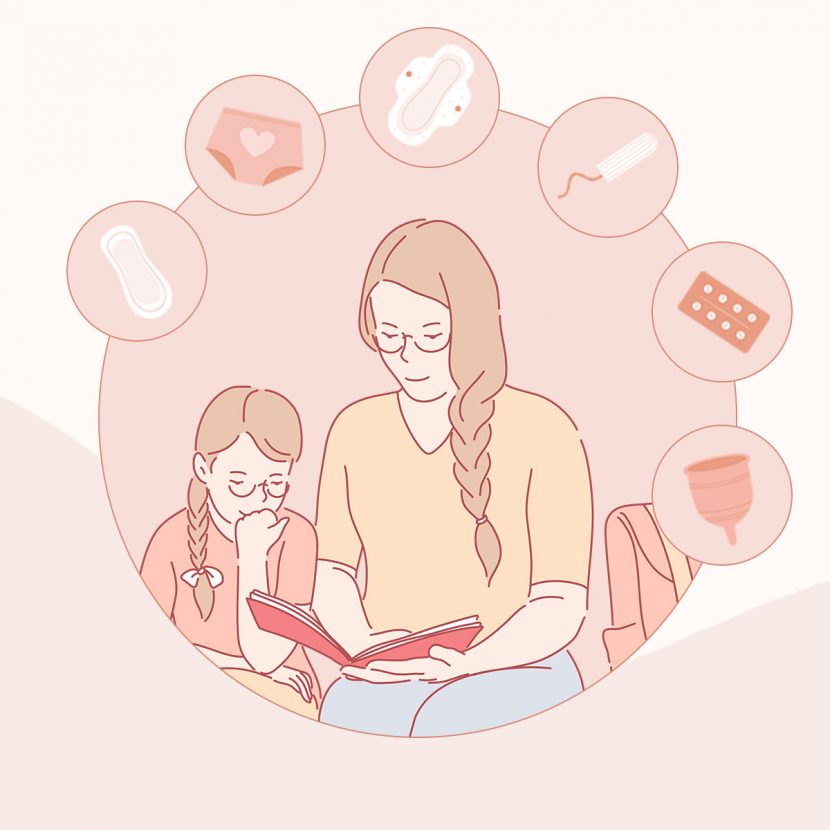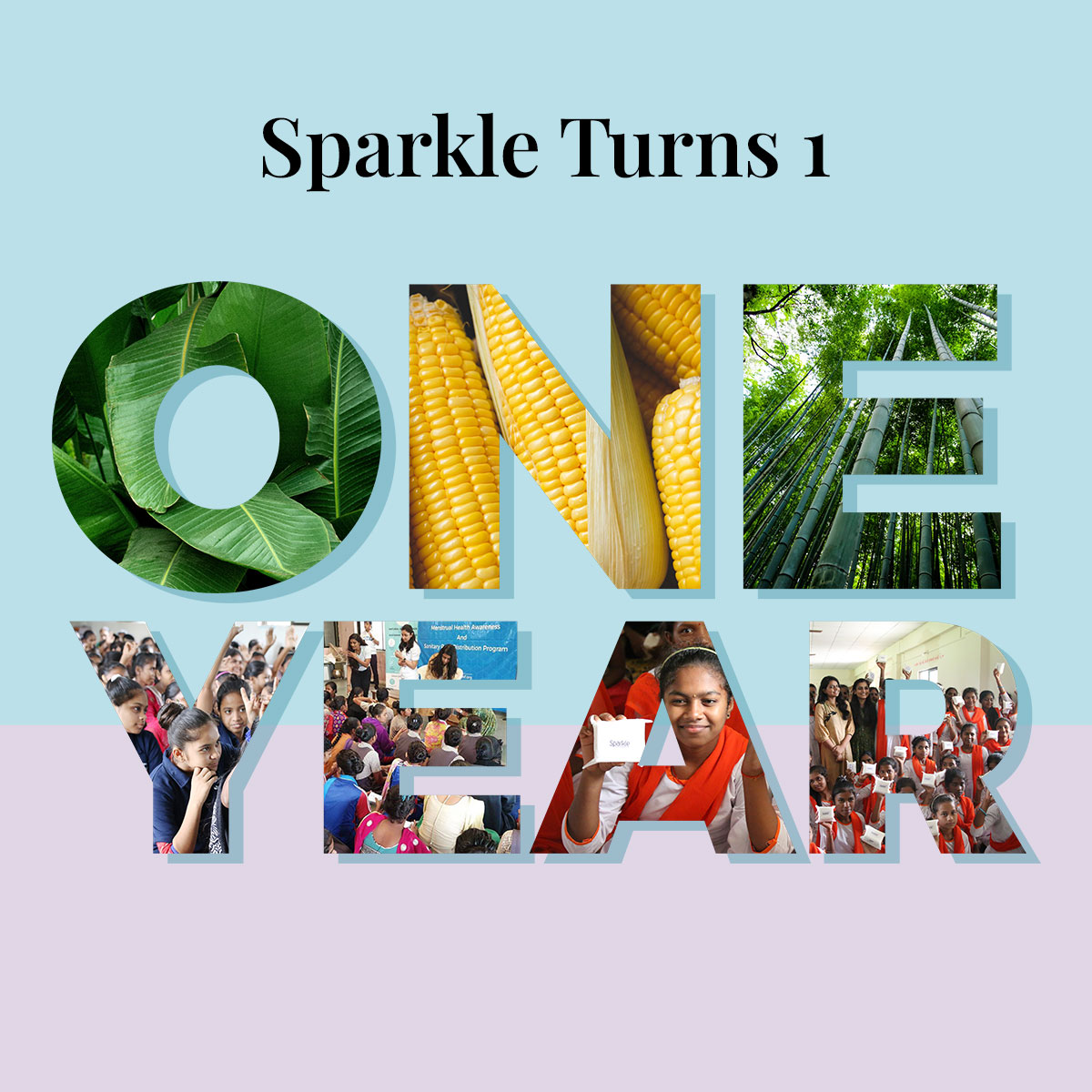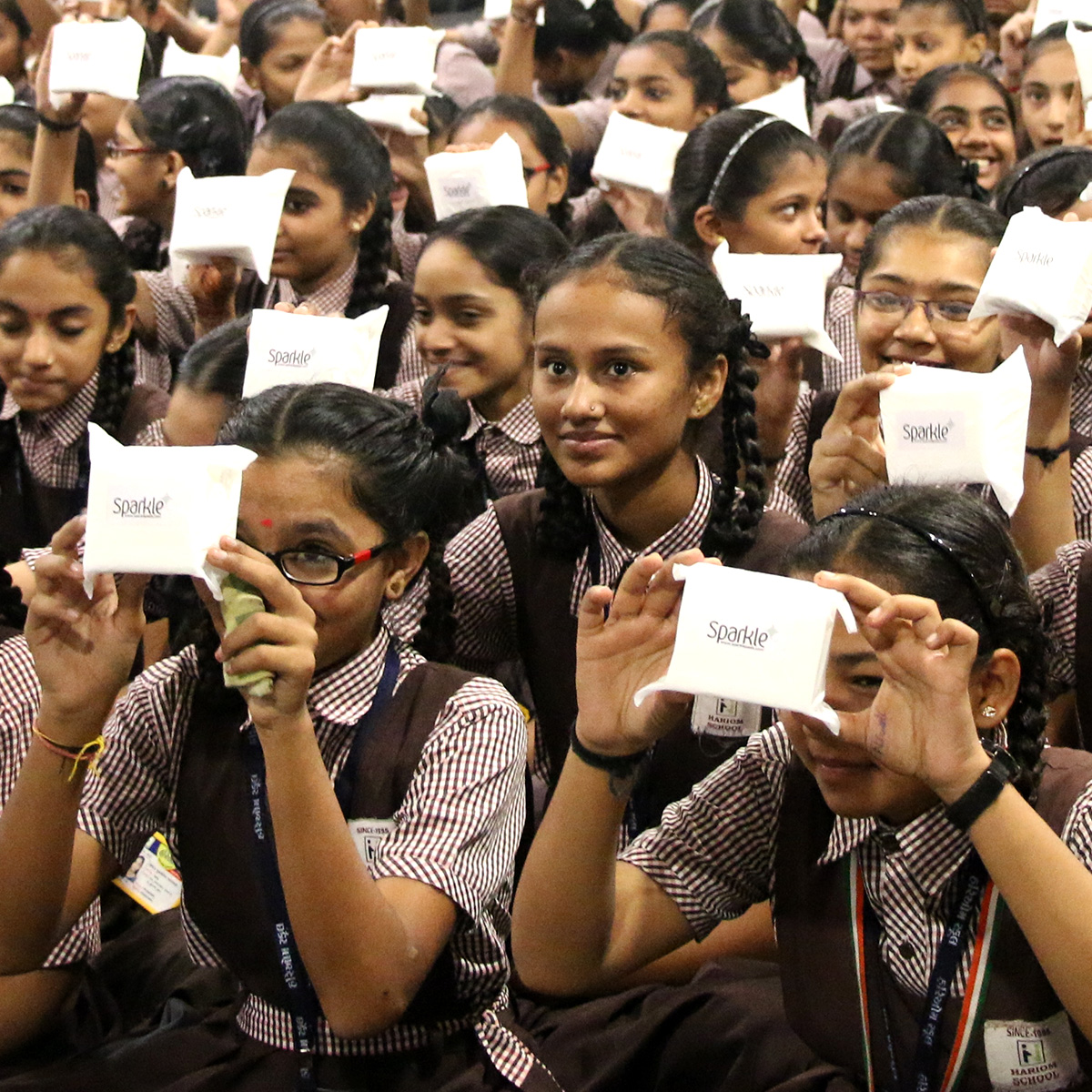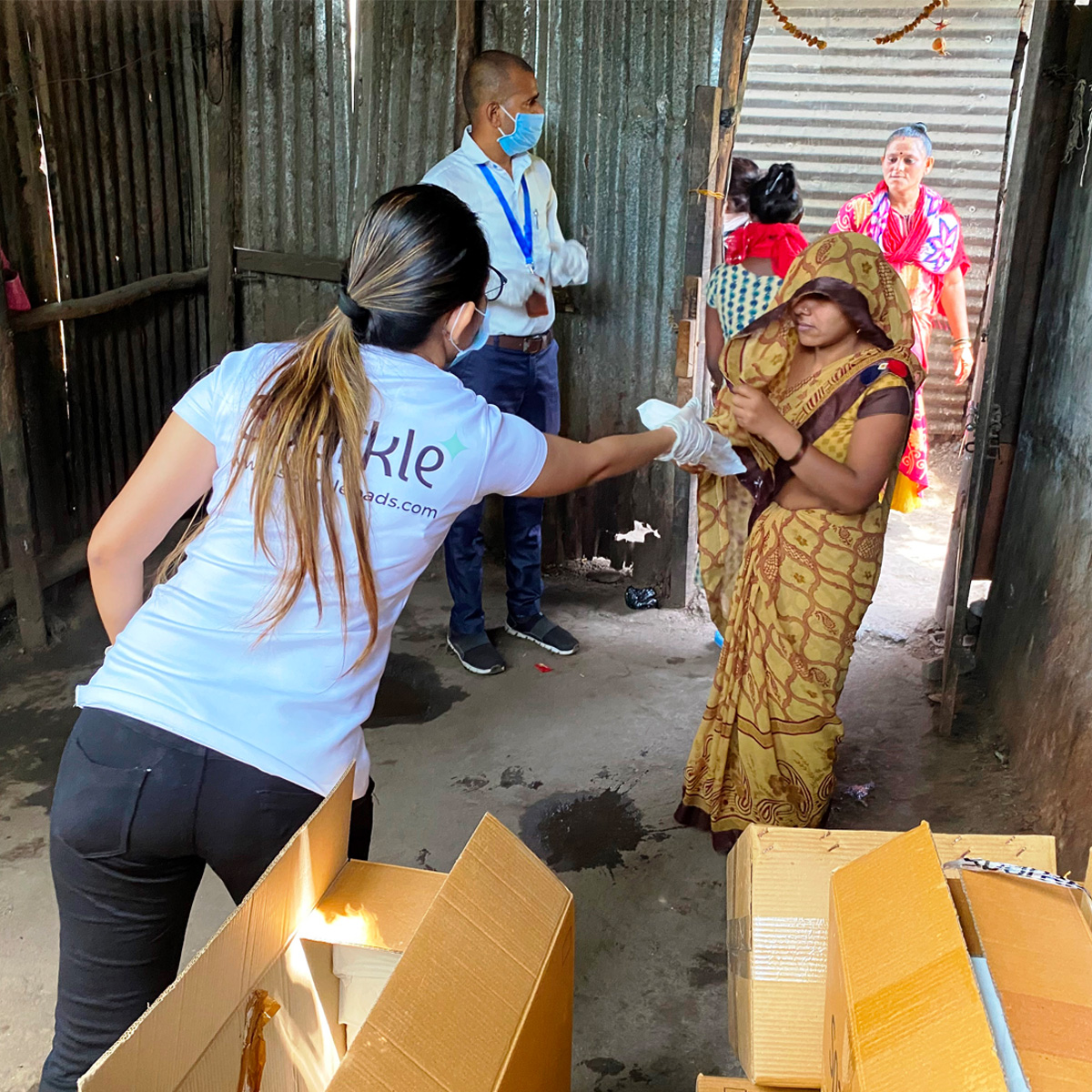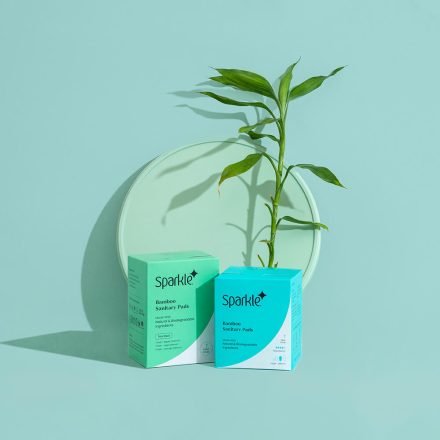Do you have this memory, too? Your little brother’s birthday? Family and friends busily move around the sitting room? All of them mill around the little boy and pull on his cheeks till they’re red? And then your mom asks the nine-year-old you to get her small purse from her handbag. You put your little hand in, feel the softness, and pull out the…pad!
You do? Then you’d probably also remember the sudden hush in the room, your embarrassed mom snatching it from your fingers, you standing there wondering what the ‘offending’ thing was.
Similar scenarios have been played out in many of our lives. Because of such situations, menstruation becomes an entry in the book of taboo topics, never to be mentioned in public, never to be respected as part of a biological process as natural as breathing.
On average, girls start menstruating at the age of 12. Isn’t it better to prepare them mentally for their periods and the changes in their bodies by having a conversation with them much earlier? When talking to a young girl about these, though, it’s necessary to keep a few things in mind.
Never Refrain From Giving Information.
You may feel awkward answering probing questions about certain topics, but it’s better to answer every period-related query with the appropriate amount of detail since these questions would invariably lead to the bigger topic of reproduction, where you would want to be as transparent with them as possible at that age. Not telling them about it when they are inquisitive would cause them to harbour negative feelings about the topic of conversation.
That doesn’t mean you have to unload all the information about menstruation on your child in one go. You may begin by telling them the basics of periods, covering the idea of menstrual cycles and why we use sanitary products. Gradually, you can introduce them to the concept of hormones, explain to them that the change in the levels of oestrogen and progesterone cause women to get periods. You can follow it up with complications in periods and how to deal with them. See this conversation through, piece by piece, one step at a time, until you make the topic understood.
Keep The Conversation Natural.
Though menstruation is a serious topic, a discussion about menstruation shouldn’t sound like a biology lecture to your daughter, but rather a conversation aimed to educate them. It doesn’t have to be a forced, formal sit-down conversation with your child; rather it should be as easy as striking a conversation with them about a pad commercial that you see on TV. Ask them what they know about pads and periods, then steer the conversation from there. The more casual you are, the more comfortable they will feel talking to you. A comfortable atmosphere also allows them to freely ask questions without having to worry about being inappropriate or reprimanded for their curiosity.
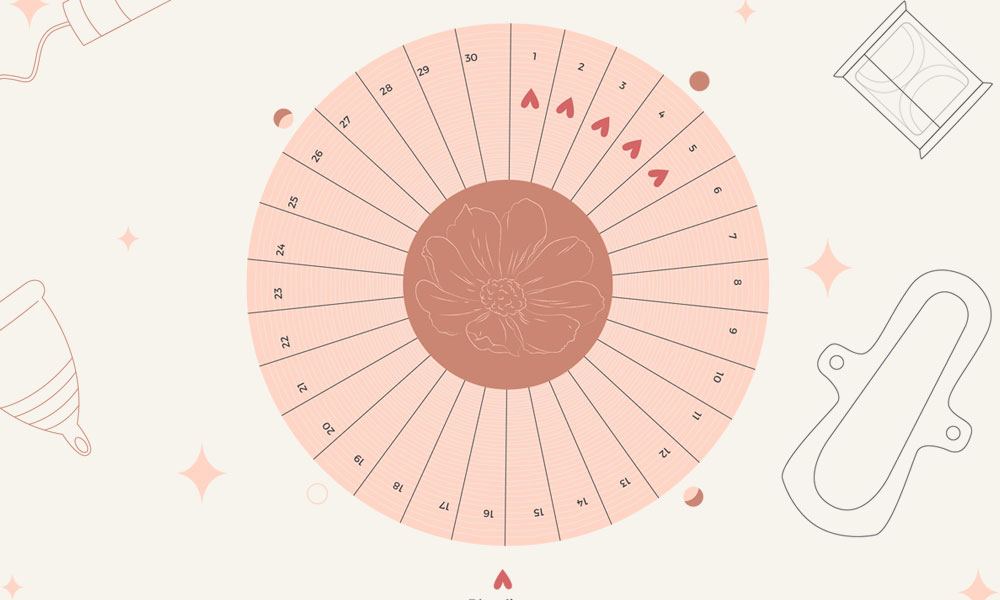
Be Practical About Period Issues They Might Face.
Don’t you sometimes get upset that no one told you that it’s okay if your period blood isn’t always red? Or that it’s normal for women to go through digestive problems while on their period? Or that extreme fatigue and weakened immunity are okay during menstruation? We, as women, have faced years in agony as we keep realizing so many essential bits of information about periods that weren’t given to us when we first started menstruating.
The least we can do is talk to young girls about these issues and be practical about it. Tell them what life as a menstruating woman is really like and let them know that what they are facing is completely normal.
Let Them Know That It’s Okay To Talk To You.
Let your child know that what they are feeling is natural and all their questions about periods will be answered, regardless of their gender. We need to be the change we wish to see; take that first step, speak up and have a conversation about menstruation.
